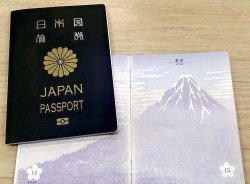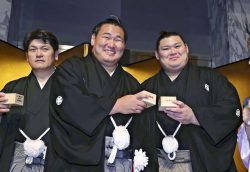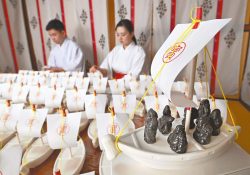China Laid Groundwork for Senkakus Incursions in 1992; Japan Reacted with Restraint for Diplomatic Reasons
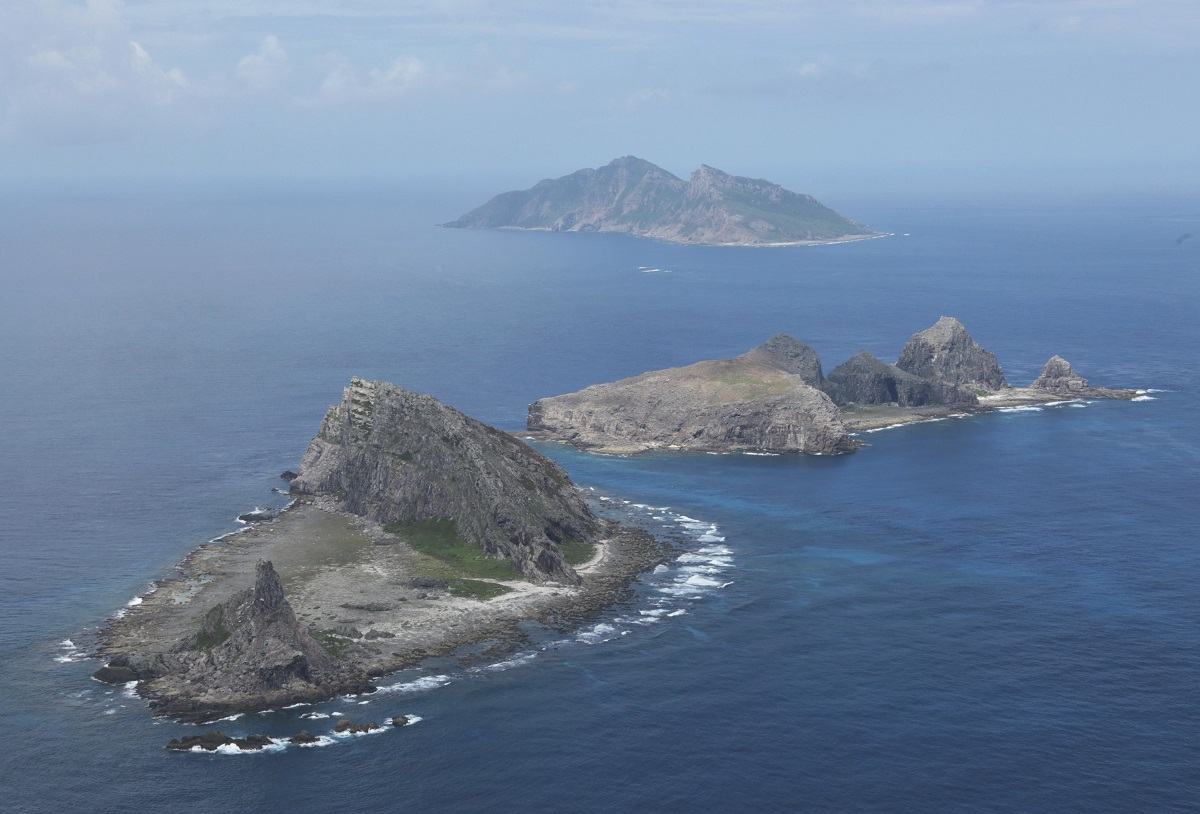
Foreground to background, Minami-Kojima, Kita-Kojima and Uotsuri islands of the Senkaku Islands are seen from a Yomiuri Shimbun plane on Sept. 6, 2013.
2:00 JST, December 22, 2023
The Japanese government opted for restraint in its response to China when Beijing enacted a law in 1992 that declared the Senkaku Islands to be its territory, in an effort to avoid a diplomatic row ahead of the then Emperor’s scheduled visit to China later that year, according to Japanese diplomatic documents released on Wednesday.
The records closely document how the Japanese government responded to the situation at that time.
China has been sending government vessels into waters around the Senkaku Islands more and more in recent years, so the Japanese government’s handling of the situation at that time may draw renewed attention.
On Feb. 25, 1992, China’s National People’s Congress enacted the Law on the Territorial Sea and the Contiguous Zone, which stated that the Senkaku Islands were part of China’s territory. The law also said that every possible measure would be taken against intrusions into territorial waters.
At that time, Japan and China were in the middle of planning a visit by the then Emperor, now the Emperor Emeritus, to China in October.
In response to calls by the Chinese government, the Japanese government was exploring ways to realize the Emperor’s visit to “set matters to rights after the war on the occasion of the 20th anniversary of the normalization of diplomatic ties between Japan and China.”
Hisashi Owada, then administrative vice foreign minister, filed a protest with the Chinese government. (In December of that year, Owada’s daughter would agree to marry the then crown prince. She is now the Empress.)
But China said that the law was not meant to change its conventional position of “shelving” the Senkaku issue. Therefore, Japan decided not to let the issue develop into a diplomatic problem. The Chinese government has claimed that the two countries both agreed to shelve the Senkaku issue and other territorial issues for future generations to solve, during negotiations for the 1978 Japan-China Treaty of Peace and Friendship and on other occasions. However, Japan denies there was such an agreement.
The enactment of the Chinese law provoked strong opposition in Japan, raising concerns within the Japanese government that it would adversely affect negotiations for the Imperial visit to China.
On April 1 that year, then Japanese Ambassador to China Hiroshi Hashimoto suggested to then Prime Minister Kiichi Miyazawa that it be proposed to Beijing to “leave the issue untouched” for six months before and after the Emperor’s visit to China.
On April 6, Miyazawa met with then Chinese Communist Party General Secretary Jiang Zemin in Tokyo, but no agreement was reached about the Emperor’s visit.
Taking the situation seriously, then Foreign Minister Michio Watanabe held a secret meeting with his Chinese counterpart Qian Qichen on the following day at the Foreign Ministry’s Iikura Guest House, according to the documents.
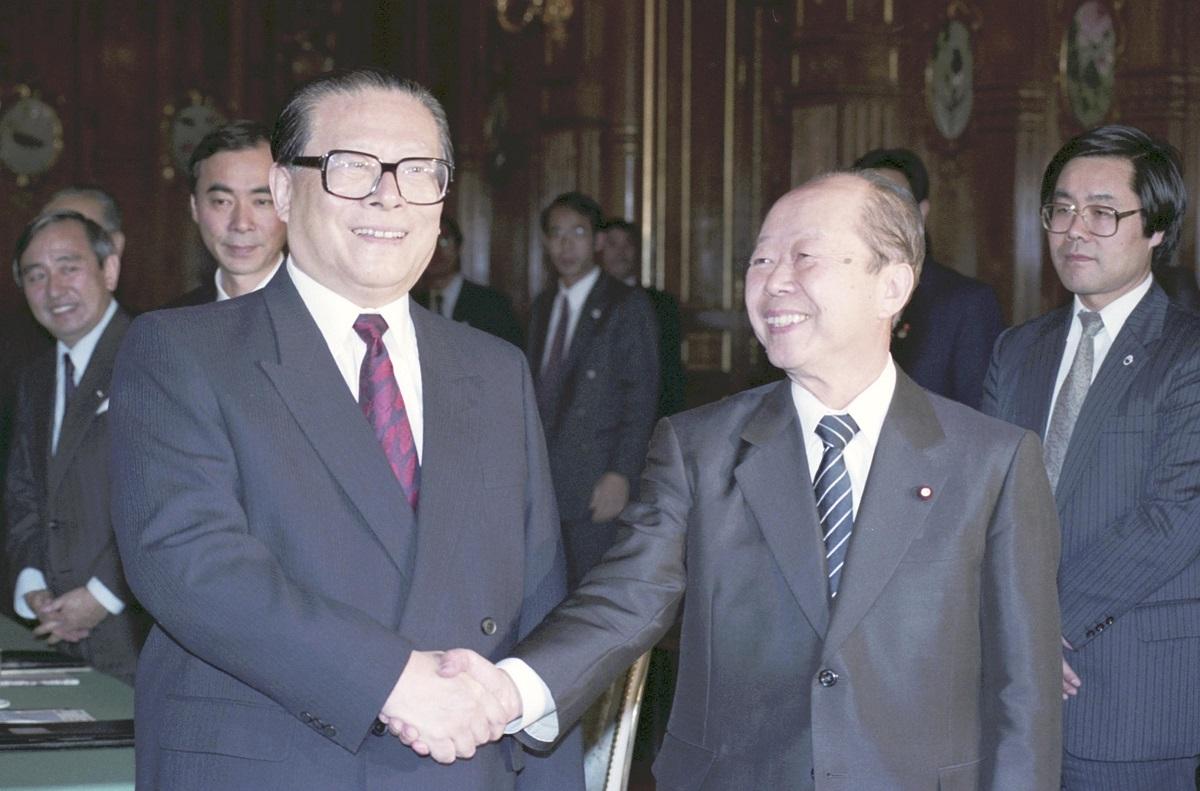
Then Japanese Prime Minister Kiichi Miyazawa, right, and then Chinese Communist Party General Secretary Jiang Zemin shake hands at the State Guest House in Tokyo in April 1992 ahead of their meeting.
Watanabe was quoted by the records as telling Qian that the establishment of the new law had “thrown cold water” on negotiations for the Emperor’s expected visit. Then, he sounded Qian out about Hashimoto’s proposal to set a “cooling-off period” before and after the Imperial visit to China. Qian approved the proposal, leading to the Emperor’s successful visit.
Yet, the enactment of the territorial waters law runs counter to China’s own claim of shelving the Senkaku and other territorial issues.
China enacted the law as if to take advantage of the situation on the Japanese side, which had no option other than to bring the Emperor’s visit to a successful conclusion. The law has been used as a basis for China’s repeated and normalized intrusions into Japan’s territorial waters since Chinese government vessels made an intrusion into territorial waters surrounding the Senkaku Islands in December 2008.
The vessels that made the 2008 intrusions belonged to the China Marine Surveillance of the National Oceanographic Agency. At that time, the deputy head of marine surveillance reportedly told a Chinese paper, “It’s necessary to show that [China has] effective control [over the Senkaku Islands].”
Since then, Chinese government vessels have repeatedly intruded into Japan’s territorial waters for what it calls patrols, making unilateral attempts to change the status quo.
Bonji Ohara, a senior fellow of the Sasakawa Peace Foundation, said the Japanese government at that time might have considered it possible to avoid a situation in which China would make attempts to change the status quo by force in light of its anticipated advancement in democratization.
“Looking it back now, Japan misjudged China, which is an authoritarian state,” he said.
At the same time, Ohara praised the realization of the Emperor’s visit to China.
“The Emperor’s visit was a symbolic event between Japan and China, so canceling the event was not an option for Japan,” he said.
"Politics" POPULAR ARTICLE
-

Japan to Support Central Asian Logistics Route That Bypasses Russia, Plan to Be Part of Upcoming Summit in Tokyo
-

Japan to Tighten Screening of Foreigners’ Residential Status by Providing Information of Nonpayment of Taxes
-

Chinese, Russian Bombers Flew Unusual Path by Heading Toward Tokyo; Move Likely Meant to Intimidate Japan
-
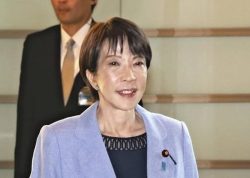
Japan Plans National Database to Track Foreign Ownership of Real Estate, Land as It Weighs New Rules
-

Up to 199,000 Deaths Estimated From Mega-Tsunami; Most Recent Occurrence Took Place in 17th Century
JN ACCESS RANKING
-

Tokyo Economic Security Forum to Hold Inaugural Meeting Amid Tense Global Environment
-

Keidanren Chairman Yoshinobu Tsutsui Visits Kashiwazaki-Kariwa Nuclear Power Plant; Inspects New Emergency Safety System
-

Imports of Rare Earths from China Facing Delays, May Be Caused by Deterioration of Japan-China Relations
-

University of Tokyo Professor Discusses Japanese Economic Security in Interview Ahead of Forum
-

Japan Pulls out of Vietnam Nuclear Project, Complicating Hanoi’s Power Plans




